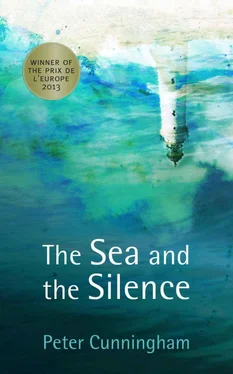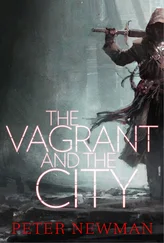‘You don’t mind if I do?’
‘Not at all.’
‘All the emphasis in school is on what we do when we leave next year,’ said Hector, puffing. ‘I’ve been talking to the careers bloke. Got on well with him. He’s given me lots to think about.’
‘Oh?’
I had not prepared well for this moment, for although I could not bear to think of Hector coming back here and launching into a business career with Ronnie — something Ronnie had once or twice alluded to — neither could I bear the thought of him going away.
‘I think I’m going to join the army,’ Hector said.
‘Hector?’
‘Royal Green Jackets, Rifle Brigade, Granddad’s old regiment.’
My breath lost its rhythm.
‘Chap in school has all the details, first I go to an officer’s training college, which is a bit like a university, then the world’s my oyster. See places like Australia, Belize, Hong Kong. I’ll be an officer.’
I could not deal with all the cascading images.
‘That’s… wonderful. But you have another year before you make your mind up.’
‘I think I have made my mind up, Mum.’
We all walked out the causeway that evening, to the drowned soldiers’ plaque, and watched the boats coming in on the tide.
Ronnie said, ‘Beware the army. Pay you nothing, lure you in with cheap talk about faraway places, then throw you on the scrap heap when you’re thirty.’
‘Your father’s right, Hector,’ I said, swept by unexpected relief for Ronnie’s opinion.
‘Different in my day,’ Ronnie went on, ‘there was a war. And an empire. Stay at home, is my advice.’
‘With respect, there’s not an awful lot here… I mean, in Ireland,’ said Hector, suddenly pale.
‘They say this Common Market will lift all the boats,’ Ronnie said.
‘Do you think England will go in with a lot of Germans?’ Hector asked.
‘No, but Ireland can’t wait and if we do the money will all be for farmers. Think of what that will do to land. You could see farms going for five, six hundred pounds an acre.’
‘You’ll make a fortune, Dad.’
‘And you can be here helping me to make it. A lot better than getting your head blown off by some bloody fanatic.’
They fished almost every day of that holiday, on the Thom in Main, from a boat off Sibrille and from the rocks outside our back door. I saw the ease in Ronnie, the untroubled slope of his shoulders as he walked side by side with Hector, their waders clomping. For those parts of the day when Ronnie had to go into Monument and I had Hector to myself, we chatted of other times in Sibrille, of Peppy, whom Hector had never really known, and of life’s enduring imperfections.
‘Mum, were you ever in love before?’
‘Before?’
Hector was staring, as if my face had revealed something new of me.
‘Before Dad.’
‘Why do you ask?’
‘I bet you were, weren’t you?’
‘Oh, maybe I thought I was.’
‘Who was he?’
‘Just someone.’
‘We never talk about your family,’ Hector said. ‘I found an old photograph once, you when you were young with two women, one of them old and wearing a black straw hat.’
‘Oh. My mother and my sister,’ I said and the day of that photo pierced me. ‘We had fifteen hundred acres.’
‘Gosh. What happened to it?’
‘It went the same way as Gortbeg in the end. It was seized and redistributed.’
‘What a shame.’
‘Actually, I think it was a good thing.’
‘Imagine what Dad would do now if he could get his hands on fifteen hundred acres. By the way, I’ve asked Lucy Toms to come to supper tonight, is that all right?’
‘Lucy? How old is she?’
‘She’s sixteen,’ Hector said and laughed. ‘She’s fun. She’s already had half a dozen boyfriends, according to Dad.’
‘The last time I saw her she was in a pram,’ I said
‘I’m going to tell her that,’ Hector said.
Lucy Toms had dyed her hair bright red and she chain smoked. The afterthought of aged parents — her mother had been over fifty; Lucy’s birth had killed her, they said — she had, without discussion, left the girl’s school she had been sent to in Monument and lived, it seemed, beyond anyone’s control or censure. She was most attractive. I had cooked pork loin, Hector’s favourite meal, and had gone into town and bought a bottle of red wine for the occasion. After supper, the three of us went up and sat in the lantern bay. Ronnie had sent word that he would not be home until after ten: he was in Deilt closing a sale, a procedure that apparently involved drinking whiskey.
‘I’ve always wanted to live here,’ Lucy said drowsily. ‘My idea of heaven.’
Hector, somewhat glassy eyed from the wine, sat in awe of such sophistication.
‘You live in a lovely house, Lucy,’ I said, for she did, albeit one that was crumbling, one of the few Georgian houses on this side of Monument and still standing on more than four hundred acres.
‘I hate it,’ Lucy said.
Her legs were crossed and the shape of her thighs stood out through her thin cotton skirt.
‘Why?’ I asked.
‘I just do, I hate it.’
‘Your father was born there. He’s worked very hard all his to maintain it.’
‘That’s why I hate it. It’s made him half mad.’
‘How is your sister?’
‘Poor Bibs.’ The girl leant back, her eyes closed and blew perfect smoke rings from her perfect mouth. ‘She’s moved to Dublin, there’re more men there.’
‘I hadn’t realised she’d gone.’
‘Went the week after Christmas, she doesn’t even write any more.’ Lucy’s gaze lacked even a hint of warmth. She smiled. ‘I wanted her to stay at home and marry Beasley.’
‘Who’s Beasley?’
Lucy giggled. ‘Chap in the yard. Hair my colour, and a beard. Looks a bit like Jesus Christ. Strong as a cart horse.’ She bit her lip. ‘And twice as dense.’
Hector’s head went between his knees as he tried to control his laughter.
‘One of the women who comes in to wash reported that he has the most enormous… equipment,’ Lucy said and then, herself, fell silent as she shook with mirth.
I had wondered if I would feel jealous of another woman’s attentions for Hector, but all I felt was dismay.
‘And why didn’t Bibs stay at home and marry Mr Beasley?’ I enquired, my anger arisen from nowhere.
Lucy composed herself. ‘Bibs would have loved to marry him, but she couldn’t because she thought she’d be letting the side down.’
‘She can’t marry Beasley, Mum!’ Hector said, as if I had missed out on crucial principles.
‘I think if you love someone you should marry them,’ I said, aware that I was giving away too much of myself. ‘Your life will never be worth living if you don’t remember that.’
‘Then you should have married your mystery man,’ Hector said.
I felt myself tremble. Hector might have slapped me in the face as said what he had, such a precious thing between us revealed like that in front of a stranger.
‘Hector,’ I chided, making light of it. ‘That was our secret.’
‘Did you want to marry him?’
‘I married your father. Does that answer your question? Now, I think we should have some tea.’
‘But if you had,’ said Lucy, smiling, ‘then there’d be some other wifey here in the lighthouse, wouldn’t there?’
I stood up. ‘I’m not a wifey,’ I said and left the room.
1966
One morning, Stonely collapsed on the causeway. Removed to Monument by ambulance, he died that night. In no worthwhile sense had I ever known him enough to feel grief, but felt instead a sense of loss for the last of Peppy’s memories. Photographs had survived of blonde-headed children in a garden. Peppy had been about twelve and the brooding child whom she held about the waist must have been Stonely. I wrote to an address in England where, possibly through the female line, lived relatives, grandnephews of Stonely’s, or perhaps cousins; I had no idea. No letter came back. It seemed impossible, I wrote to Hector in his officers’ training college, that only this photograph remained as evidence that these fair-haired children had ever existed,
Читать дальше












![Edward Ellis - Adrift on the Pacific - A Boys [sic] Story of the Sea and its Perils](/books/753342/edward-ellis-adrift-on-the-pacific-a-boys-sic-s-thumb.webp)